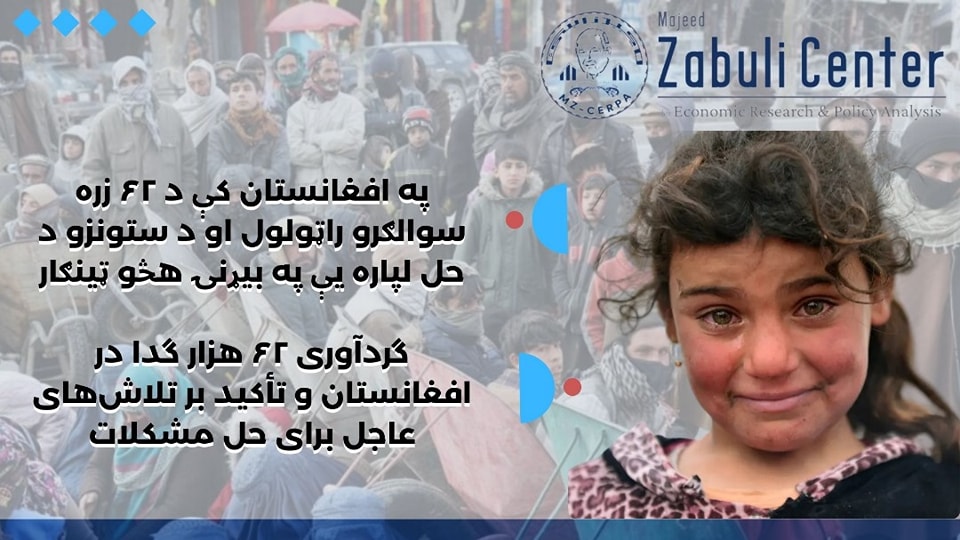19 Jan,26
Most Searched Keywords
04 Aug
Collection of 62,000 Beggars in Afghanistan and the Urgent Need for Solutions

Over the past two years, efforts have been underway to collect and register beggars across Afghanistan, with the total number now reaching 62,000. The majority of them have been identified in Kabul, while a smaller number have been registered in Nimroz province. Among the registered individuals, 27,715 have been categorized as truly deserving of support, 31,126 are considered professional beggars, and the rest include orphaned children and individuals struggling with drug addiction. The orphaned children have been referred to care centers run by the Ministry of Labor and Social Affairs to receive education and support.
The presence of such a large number of beggars highlights a serious social problem that requires immediate attention. Due to poverty and a lack of job opportunities, many Afghans are forced to migrate to Iran or European countries to support their families. Unfortunately, some lose their lives on the journey. To address this problem sustainably, the interim government must urgently take action to create employment opportunities and enable people to work and support themselves.
Programs focused on vocational training and job creation are essential to help beggars become self-reliant and improve their quality of life. These efforts are not only vital for solving the issue of begging but also for strengthening social stability. The Global Multidimensional Poverty Index has also revealed the depth of the crisis, showing that 70 percent of children and 64.9 percent of the overall population in Afghanistan live in poverty. Between 2015 and 2023, an additional 5.3 million people fell into poverty, with lack of access to education and widespread malnutrition being key contributing factors.
To address this challenge, it is crucial to develop job opportunities and expand access to basic social services. These steps can help ensure a life of dignity for Afghans and prevent the repetition of such humanitarian crises in the future.
